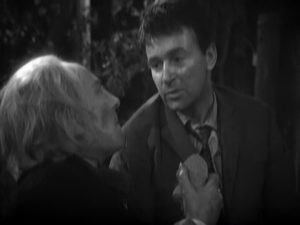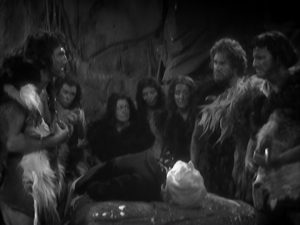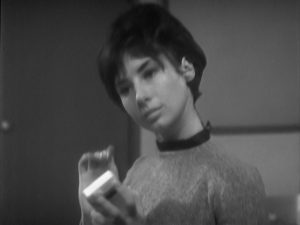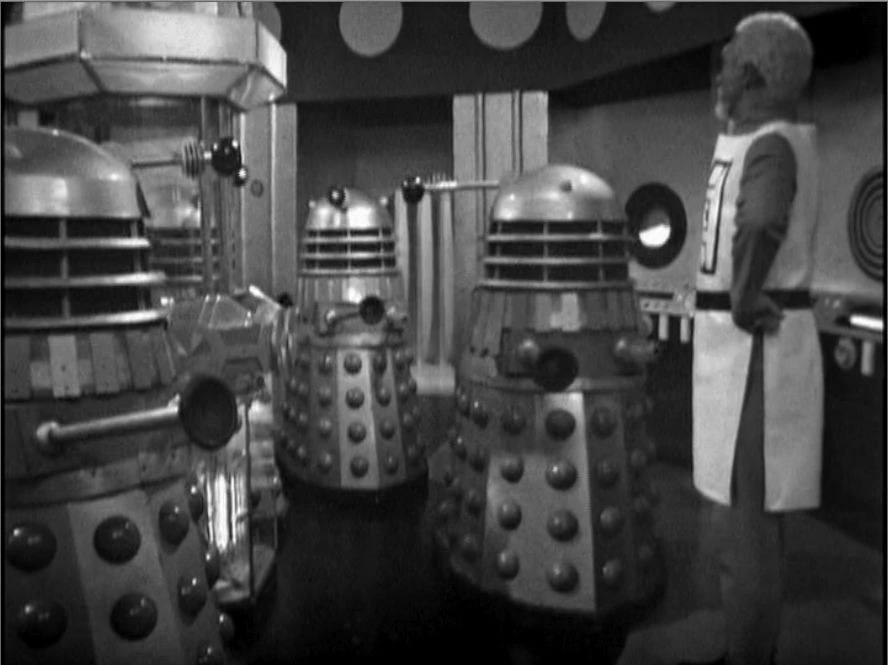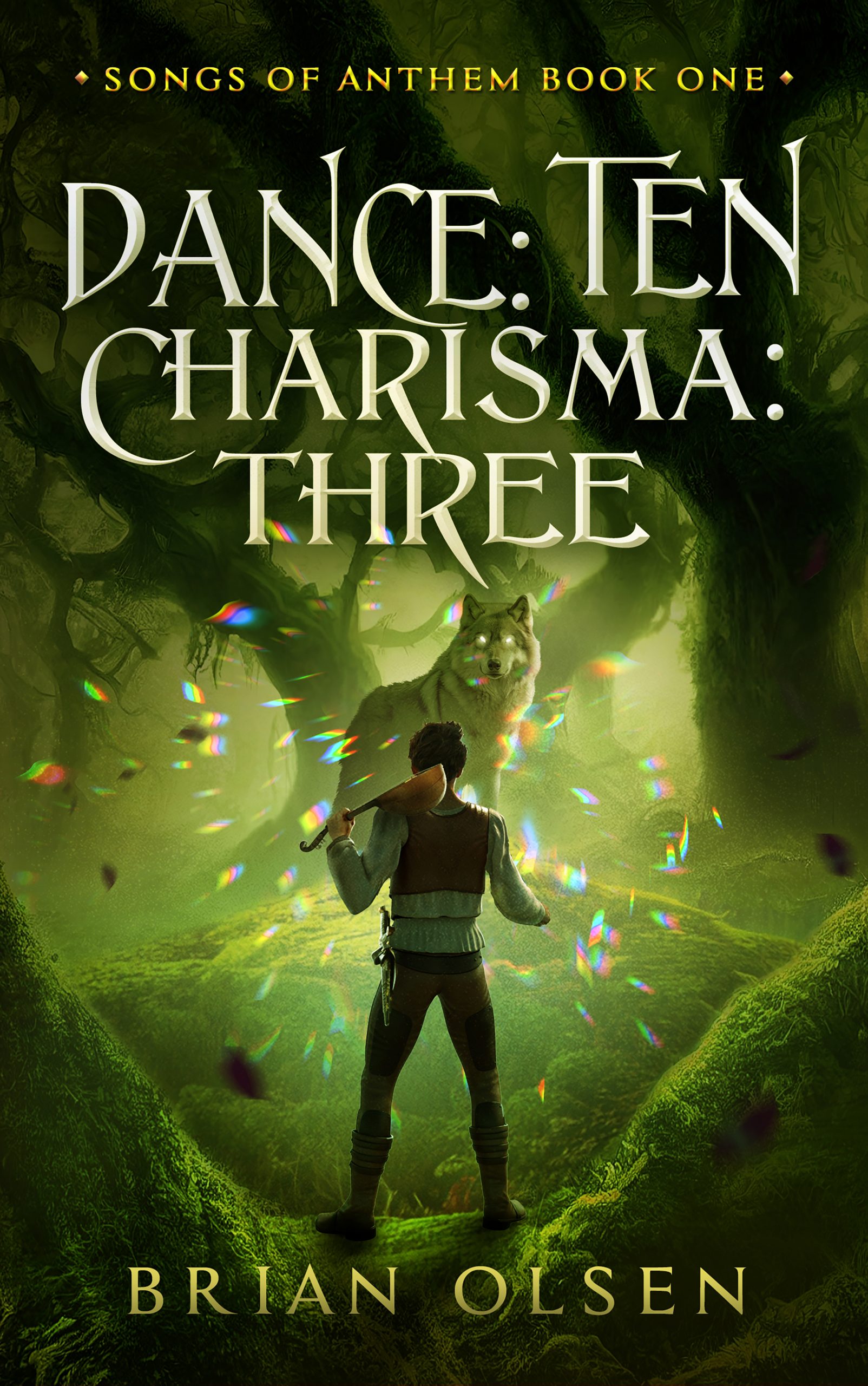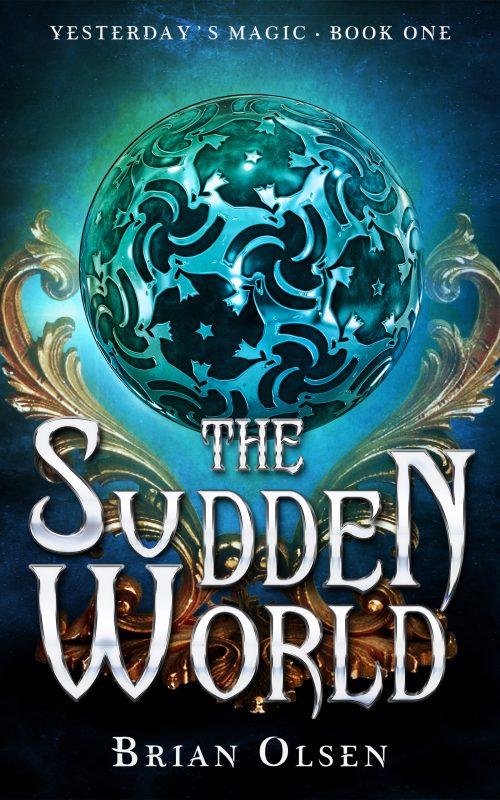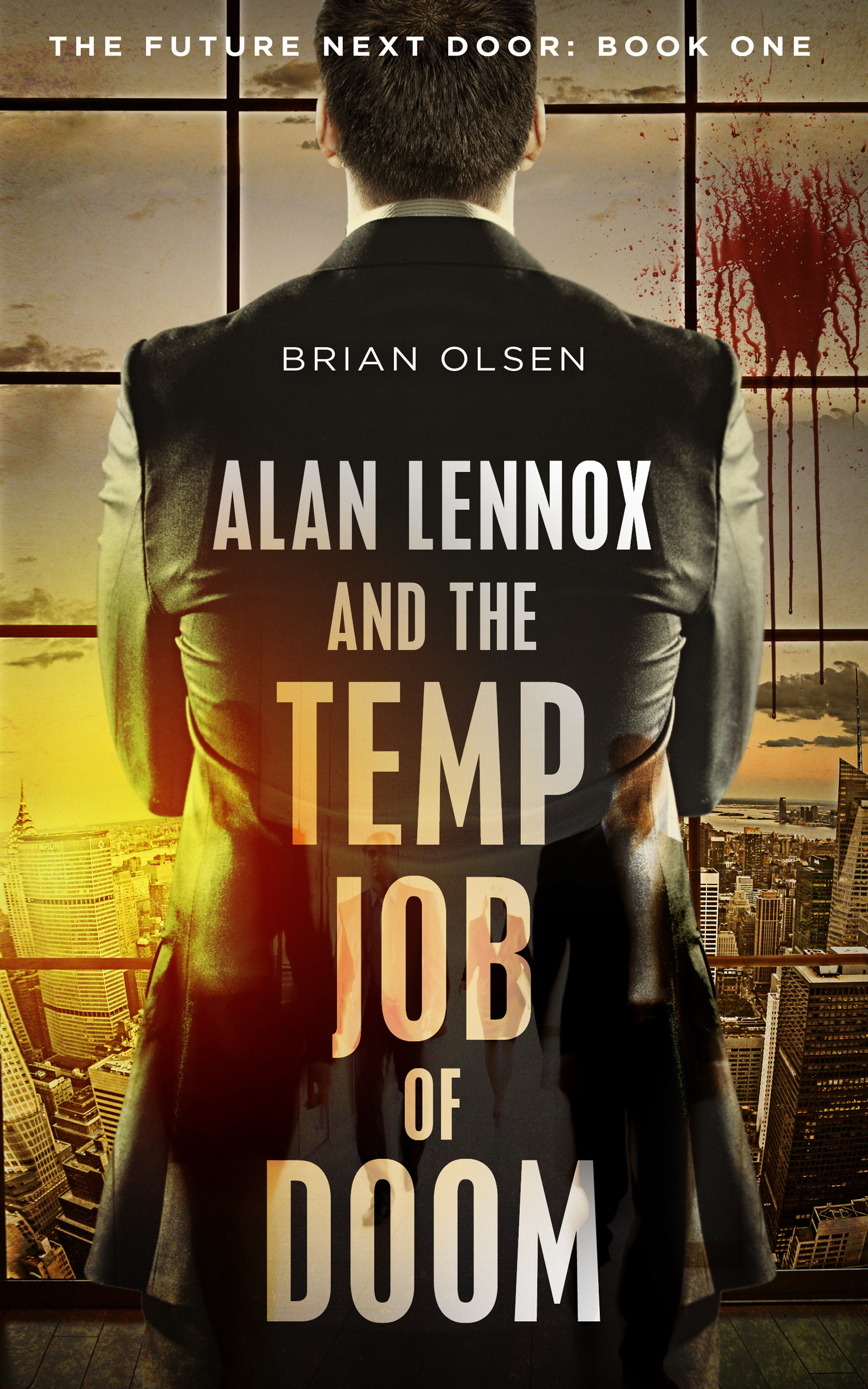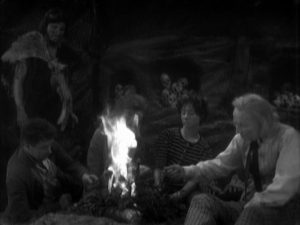
I wrote last time about empathy, and how it’s not yet a core element of the Doctor’s character. Rewatching “The Firemaker,” the final episode of An Unearthly Child, I’m struck by how much writer Anthony Coburn has centered the idea of empathy throughout the whole story, with the theme coming to a head in its conclusion. It’s not just the Doctor who has to learn how to show compassion for strangers in this story; it’s all of humanity.
We have to take Coburn’s views on prehistoric humans with a big grain of salt, I think. Call me a cockeyed optimist, but I like to believe, recent world events notwithstanding, that empathy for strangers has always been an integral part of humanity, and, for most, it takes a strong motivating factor (fear, desperation, end-stage capitalism) to override it. But in the world of Doctor Who circa 100,000 BC, it’s every tribe for themselves, and even within the tribe, empathy isn’t a given. When Ian tells Hur he’s a friend, she thinks that’s his name, because the word doesn’t exist in their language. Assuming the tribe isn’t speaking English, which would be pretty unusual, we jump ahead thirteen seasons to The Masque of Mandragora and return with the idea that the TARDIS is mentally translating the tribe’s actual language. This suggests that they don’t just not have a word for “friend;” they don’t even have the concept.
Last episode, Barbara, Ian, and Susan helped Za survive a beast’s attack, to Hur’s utter bewilderment. When Hur tells Za what they did while he was unconscious, her face is a mask of confusion. She doesn’t understand why they didn’t kill him; the closest she can come to describing their behavior is analogizing it to a mother with her baby. In this episode, the Doctor and crew go even further in helping Za. The Doctor proves Za’s innocence in the murder of the old woman and encourages the tribe to drive Kal out, firming up Za’s claim on leadership. Ian shows Za how to make fire, further solidifying the caveman’s position.
Of course, the TARDIS team aren’t doing all this out of empathy. They saved Za’s life because of their compassion, yes, but everything after that is just bargaining. They help Za because they hope he’ll let them free in return. He doesn’t, of course, but the way in which he refuses them is what’s so interesting. The actor who plays Za, Derek Newark, does an incredible job making the most of the minimal dialogue Coburn’s script allows him. Za wants to keep the travelers, merging their tribe with his, but he never really gives a reason. It’s possible he wants to see if they have more secrets as powerful as fire to share, but he never says this. He justifies his imprisonment of them by saying there’s nowhere better they could go, but he doesn’t sound like he quite believes it. He makes sure they have food and water, checks to be sure no one has hurt them, reassures them that they’ll be better off with his tribe. All the while, Newark conveys how strongly Za feels… something for these newcomers, a want for them not to be angry with him, a need to keep them close. An emotion he feels strongly without understanding what it is or why he feels it.
In Za’s utilitarianist society, the right thing to do would be to kill them, and no one in his tribe would bat an eye. He has what he needed from them; now they’re just four more mouths to feed. But Za’s been infected with their empathy.
In the Moffat era, many years from now, we’ll get the idea that the word “doctor” comes from the Doctor himself; that his compassion seeded the idea of a healer, a helper, a thinker, throughout time and space. I think Coburn is suggesting something similar, but subtler, here. (And I love Moffat, but it’s not hard to be subtler.) The Doctor is responsible for seeding empathy in the human race, at the same time as he was learning it from his new, unwilling companions.
Of course, a few minutes later, after they escape and are fleeing back to the TARDIS, Barbara trips and the Doctor almost tramples her running past in his mad dash to safety. So he hasn’t fully learned empathy yet. But he’s got time.
